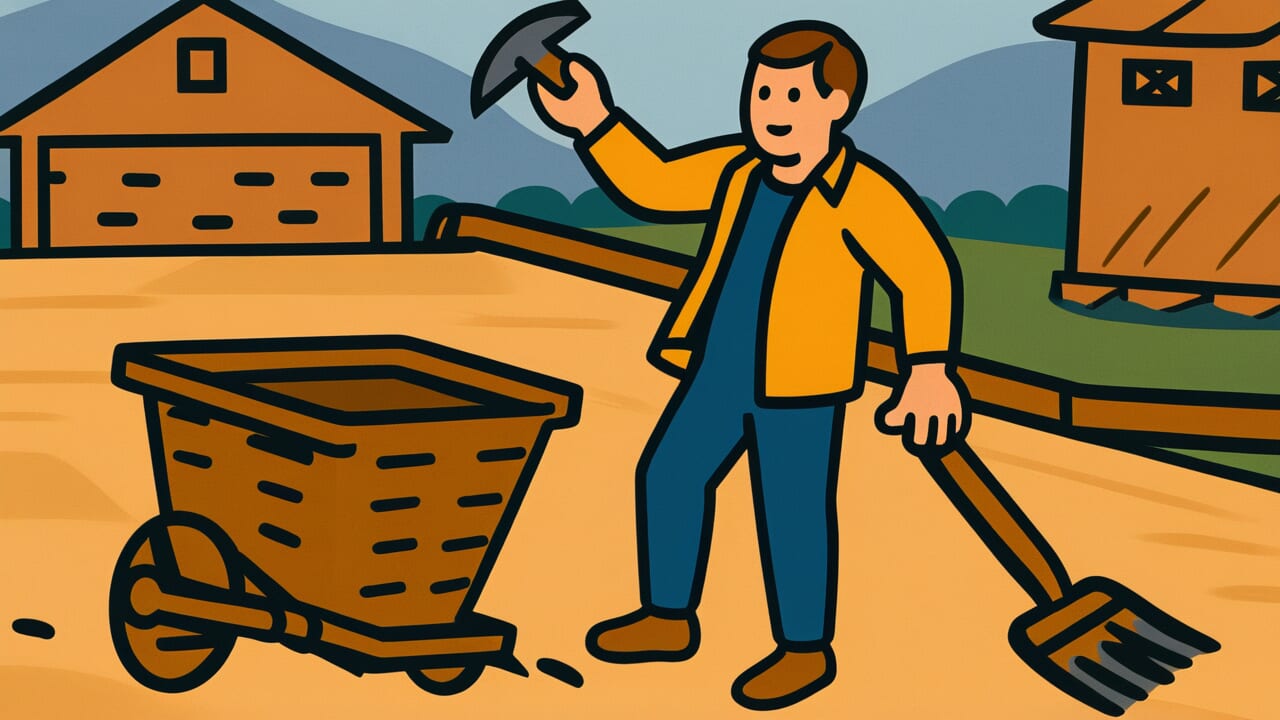How to Read “Don’t ride on flattery or a winnowing basket”
Odate to mi ni wa noru na
Meaning of “Don’t ride on flattery or a winnowing basket”
This proverb warns against getting carried away when people flatter you. When others praise or lift you up, you might overestimate yourself.
You start believing you can do more than you actually can. This state is like riding an unstable winnowing basket. You could fall at any moment.
People use this proverb for someone who gets too excited from praise. It also applies to those who take compliments too seriously and become overconfident.
You can also use it as a personal reminder to stay humble. Even today, we face many situations where praise can make us lose perspective.
Social media likes and compliments from bosses can easily go to our heads. This proverb teaches us to stay calm and view our abilities objectively.
Origin and Etymology
No clear historical records explain the exact origin of this proverb. However, we can learn much from how the words are put together.
“Odate” means flattery – praising someone to make them feel good. “Mi” refers to a winnowing basket made from bamboo or straw.
People used this shallow basket to carry soil and stones. It was essential for farming and construction work in old Japan. You rarely see it today.
The proverb cleverly pairs an abstract action with a concrete object. Why these two things together? Both involve “riding.”
A winnowing basket is light and unstable. If you actually rode in one, you would flip over easily. Getting carried away by flattery is just as dangerous.
People likely created this saying during the Edo period. Using everyday tools as examples made the lesson easy for everyone to understand.
This practical metaphor reflects the wisdom rooted in daily life of that time.
Interesting Facts
The winnowing basket is also called “mokko” in some regions. Some versions had poles so two people could carry it together.
While lightweight and portable, it had an unstable center of gravity. If you lost balance even slightly, everything would spill out.
This instability is exactly why it was chosen for this proverb’s metaphor.
Many senryu poems and comic verses from the Edo period satirize people who fail after being flattered. This shows people back then understood the dangers of sweet talk.
Usage Examples
- I got carried away when my boss praised me and made a huge mistake. This is exactly what “Don’t ride on flattery or a winnowing basket” means.
- That person takes compliments too seriously. You should warn them: “Don’t ride on flattery or a winnowing basket.”
Universal Wisdom
Humans have a fundamental desire to be recognized and praised. This connects to our survival instincts and is completely natural.
That’s why praise makes our hearts soar. We feel like we’ve become someone special, even if it’s an illusion.
This proverb has survived hundreds of years because our ancestors understood this desire is also our weakness. People who get carried away by flattery often feel insecure about their abilities.
They depend too much on others’ opinions. When they hear praise, they feel relieved and lose their balance.
What’s interesting is the proverb says “don’t ride,” not “don’t flatter.” It accepts that flatterers exist. Instead, it questions the mindset of those who get carried away.
The world always has people who want to use you. Some approach you with insincere words. You must accept this reality.
The proverb teaches the importance of keeping your judgment and composure. True confidence comes from solid self-understanding, not from others’ opinions.
When AI Hears This
The human brain normally feels losses about twice as strongly as gains. Prospect theory calls this “loss aversion bias.”
For example, losing 10,000 yen hurts about twice as much as gaining 10,000 yen feels good. This sensation usually protects us from risks as a defense system.
However, when you’re praised and enter a “hot state,” this defense system temporarily shuts down. Your brain releases massive amounts of dopamine.
The anticipation of rewards overwhelms your fear of loss. Research shows emotionally excited people underestimate risks by three to five times compared to when calm.
This explains why riding an obviously dangerous winnowing basket seems “maybe okay” the moment you’re praised.
Even more troublesome is the “hot-cold empathy gap.” Your calm self can’t imagine how much judgment your excited self loses.
Your excited self can’t predict how much your future calm self will regret things. When someone is being flattered, their brain operates in a different mode.
Warnings like “that’s dangerous, stop” don’t reach them easily. This proverb identified this cognitive bug in the human brain centuries ago.
Lessons for Today
This proverb teaches you not to measure your worth only by others’ opinions. Social media likes, praise from your boss, compliments from friends – these feel good.
But they don’t define your entire value.
What matters is developing the habit of stepping back when praised. Ask yourself: “Why is this person praising me now? Is this evaluation really fair?”
This isn’t about becoming suspicious. It’s wisdom for maintaining healthy self-awareness.
The proverb also teaches the value of humility. People who believe they still have things to learn are strong. They see room for growth no matter how much praise they receive.
This attitude leads to true confidence.
You know your own worth better than anyone. Don’t let others’ words make you swing between joy and despair. Listen to your inner voice instead.
This way, you can build a solid self that no words can shake.



Comments